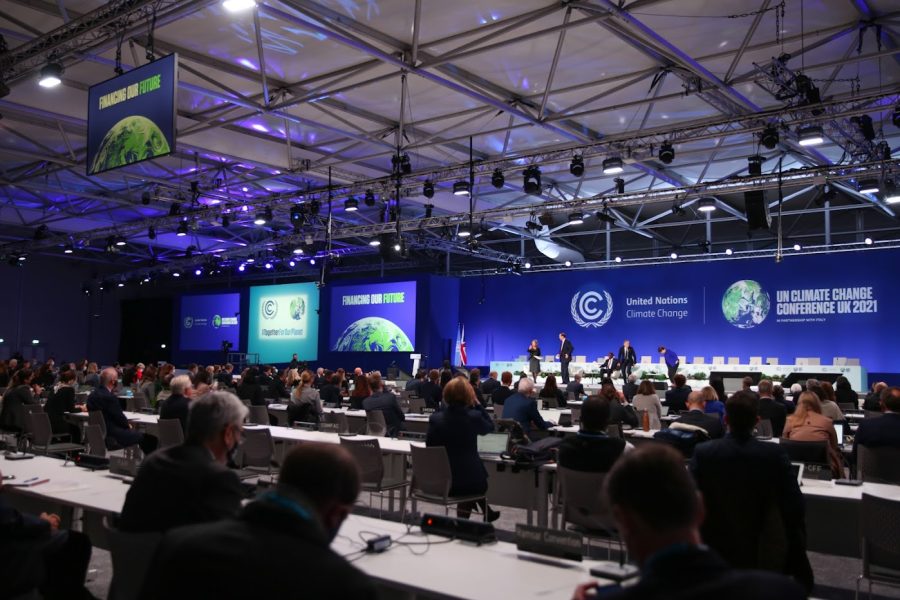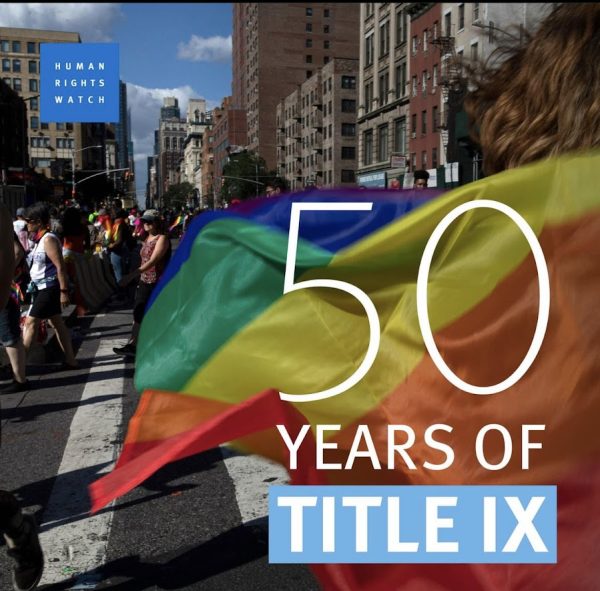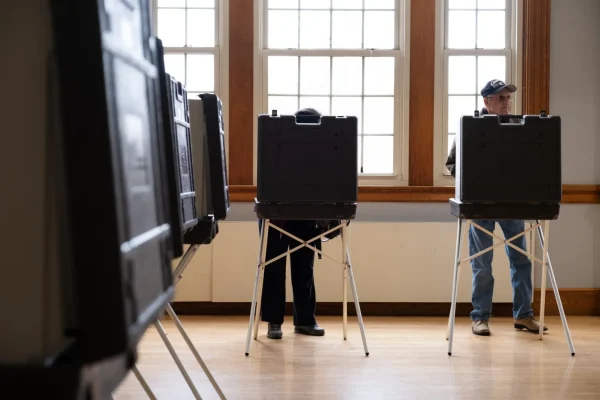Overview of the 2021 U.N. Climate Change Conference
Photo courtesy of Flickr/UNclimatechange
Inside of the U.N. Climate Change Conference, Glasgow, Scotland, Nov. 3, 2021.
Between Oct. 31 and Nov. 12, the UN Climate Change Conference took place in Glasgow, Scotland. This was the 26th session of the Conference of the Parties (COP26) that brought together world leaders and activists looking to propose solutions for meeting the goals outlined in the 1994 UN Framework Convention on Climate Change, and the 2015 Paris Agreement.
This year, the U.K. and Italy hosted COP26. Over 190 world leaders attended, alongside tens of thousands of government representatives, negotiators, businesses and citizens. It was over twelve days of discussion aimed at reducing emissions, increasing adaptability and resilience to the effects of climate change and increasing financial and general support for climate action.
Throughout the event, numerous speakers discussed issues pertinent to halting climate change, including U.K. Prime Minister Boris Johnson, Prince Charles, UN Secretary General Antonio Guterres and Sir David Attenborough.
Other attendees included environmental activist Greta Thunberg and U.S. Pres. Joseph Biden.
The U.S. made their stance clear early on—that its intent was to advance climate action to meet both national and international goals. The U.S. Department of State said that “The United States [is] committed to making the 26th Conference of the Parties… the turning point in global efforts to address the climate crisis. Mobilizing a whole-of government approach, the United States is scaling up action at home and abroad to put the world on a path to reach net-zero emissions by 2050.”
One agreement reached during the conference was between the U.S. and China to cut emissions. As the world’s two largest emitters of greenhouse gases, this agreement was considered a major success during the summit.
This agreement shows a continued shift in U.S. foreign policy toward tackling climate change under the Biden administration after former Pres. Donald Trump formally removed the U.S. from the Paris Agreement. Although Biden signed an executive order on his first day in office to rejoin this agreement, continued efforts indicate the U.S.’ current strides to put the nation at the forefront of international action.
On Nov. 13, delegates were seen working overtime in order to finalize a final agreement that aimed to sustain progress towards keeping global warming below 1.5 degrees Celsius.
COP26 President Alok Sharma spoke on the finalization of the deal and said, “This is a fragile win… whilst I do believe we have reached a historic agreement, what this will be judged on is not just the fact that countries have signed up, but it will be judged on whether they meet and deliver on the commitments.”






